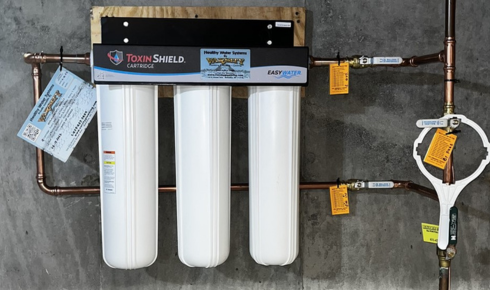If you’ve lived on Long Island long enough, you’ve probably noticed something odd about the tap water. Maybe it’s that faint metallic taste, or perhaps the occasional cloudy look when it first pours from the faucet. For many homeowners, water quality isn’t something they think about until it becomes impossible to ignore — when the smell, taste, or stains on fixtures start to make daily life feel, well, less than clean. The truth is, clean water on Long Island isn’t a luxury anymore. It’s a necessity that requires awareness, the right technology, and a bit of diligence.
The Story Beneath the Surface
Long Island’s water doesn’t come from rivers or lakes like it does in many other regions. Instead, it’s drawn from deep underground aquifers — vast natural reservoirs that have sustained the island for generations. But over time, those aquifers have been affected by human activity: industrial runoff, fertilizers, septic systems, even old fuel spills that seep through the soil. It’s not a doomsday scenario, but it does mean that what flows from your tap may not be as pristine as it once was.
This is where the idea of long island clean water takes on real meaning. It’s not just about filtered drinking water; it’s about protecting the health of your household and preserving the environment for future generations. Every time someone installs a modern filtration system or chooses sustainable plumbing solutions, they’re participating in a quiet, collective effort to restore what’s been lost — the purity of our most essential resource.
The Quiet Contaminants
Here’s the thing: most water issues on Long Island aren’t immediately visible. You can’t always see the contaminants. Nitrates, volatile organic compounds (VOCs), and heavy metals like lead or copper might be present in trace amounts, slowly building up over time. Some of these contaminants come from agriculture, others from aging infrastructure or household products that end up in the groundwater.
Many homeowners first realize there’s a problem when their appliances start acting up — discolored laundry, limescale buildup on fixtures, or the constant need to replace water heater elements. It’s subtle, but it all points back to the same root issue: unfiltered or poorly treated water.
That’s where modern long island water filtration systems step in. They’re not the bulky, outdated contraptions of decades past. Today’s systems are compact, efficient, and tailored to specific local water challenges. Reverse osmosis units, UV sterilizers, and whole-house filtration setups can remove everything from sediment to harmful microorganisms. More importantly, they give homeowners peace of mind. Because when you turn on the tap, you shouldn’t have to wonder what’s really in your glass.
The Cost of Neglect
Ignoring water quality problems might seem harmless in the short term, but it’s like skipping oil changes for your car. The wear and tear accumulate quietly until one day, you’re dealing with expensive plumbing repairs, broken fixtures, or health issues you can’t quite trace back. Minerals like calcium and magnesium cause “hard water,” which corrodes pipes and damages appliances. Chlorine, while used to disinfect, can dry out skin and hair and affect taste. Over time, all of this adds up.
The truth is, water quality maintenance is far cheaper than water damage recovery. Regular filter replacements, periodic testing, and routine service visits can keep your system running smoothly for years. And if you ever find yourself searching for water system maintenance near me, that’s a sign you’re already ahead of the curve — proactive instead of reactive. Because once water quality starts slipping, it rarely fixes itself.
Local Knowledge, Local Solutions
Long Island isn’t just another dot on the map — it’s a unique geological system. The same soil that nurtures its trees and gardens also determines how water moves underground. That’s why generic “one-size-fits-all” filters don’t always work here. The best systems are designed with local water reports in mind. They address specific contaminants common to Nassau and Suffolk Counties — things like PFAS (“forever chemicals”), iron, and chlorine byproducts that might be less common elsewhere.
Local water experts and plumbers who specialize in filtration understand these nuances. They don’t just install systems; they tailor them to your home’s layout, your family’s needs, and the local water table. It’s a more personal, thoughtful approach to something that affects your daily life.
Beyond the Faucet
When people think of clean water, they often focus on drinking — and that’s fair. But your water also touches your skin, your clothes, your dishes, even the air when you shower. Poor-quality water can shorten the lifespan of everything it interacts with. Think of how mineral buildup ruins your coffee maker or how chlorine odor lingers on towels. Once you start noticing, it’s everywhere.
That’s why a complete water system — not just a kitchen filter — makes sense. Whole-house filtration ensures every tap, every shower, every appliance benefits. It’s not only about taste or smell; it’s about improving comfort, protecting investments, and promoting better overall health.
The Human Side of Clean Water
At its core, this isn’t just about pipes and filters — it’s about people. Families sitting down for dinner, kids filling water bottles for soccer practice, parents washing baby bottles at midnight. Clean water quietly supports all of it. And when you know your water is safe, there’s a certain peace of mind that can’t be overstated.
In a world full of uncertainties, water shouldn’t be one of them. Long Island’s residents deserve better than “good enough.” They deserve water that’s crisp, clean, and worry-free — the kind that makes you trust the tap again.
The Final Drop
If there’s one takeaway, it’s this: water quality isn’t something to leave to chance. Whether you’re new to the area or have lived here your whole life, investing in proper filtration and regular upkeep isn’t just smart — it’s necessary. Because clean water isn’t just about taste or convenience. It’s about health, home, and the quiet comfort of knowing the basics are taken care of.
So the next time you fill a glass or run a bath, take a moment to think about what flows behind the scenes — the layers of care, science, and maintenance that keep it pure. On Long Island, that effort matters more than ever.

